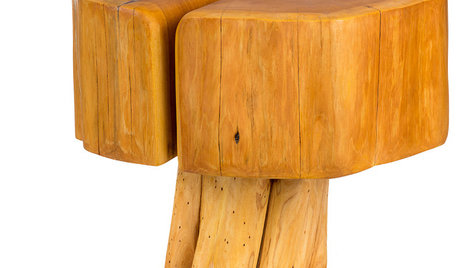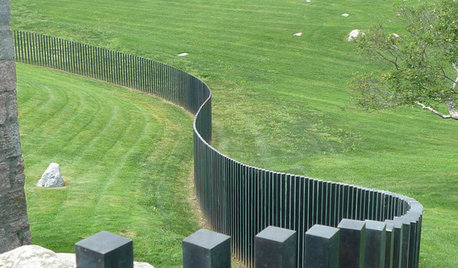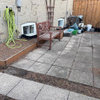Too Much of a Good Thing
raymondo17
9 years ago
Related Stories

GARDENING FOR BUTTERFLIESGardening for the Bees, and Why It’s a Good Thing
When you discover how hard bees work for our food supply, you may never garden without them in mind again
Full Story
LIFEYou Said It: ‘Happy Is Such a Good Thing’ and More Quotes of the Week
Holiday prep and New Year’s plans have been filling our time at home this week
Full Story
PRODUCT PICKSGuest Picks: Beautiful Things You Can Feel Good About Buying
Upcycled, ecofriendly or just made responsibly, these home accessories and furniture pieces will keep your conscience clear
Full Story
ARCHITECTURE4 Things a Hurricane Teaches You About Good Design
When the power goes out, a home's design can be as important as packaged food and a hand-crank radio. See how from a firsthand account
Full Story
LANDSCAPE DESIGNGood Fences, Good Neighbors — and Good Views
See-through vertical fencing connects a yard with its surroundings while keeping children and pets safely inside
Full Story
REMODELING GUIDES10 Things to Consider When Creating an Open Floor Plan
A pro offers advice for designing a space that will be comfortable and functional
Full Story
THE ART OF ARCHITECTUREThe Good House: Design Is in the Details
Plan the small things early on to enhance your architecture and enrich your home’s story
Full Story
DECORATING GUIDESDecor With Chiseled Good Looks
Discover why people are becoming fascinated with all things faceted around the home
Full Story
FEEL-GOOD HOME12 Very Useful Things I've Learned From Designers
These simple ideas can make life at home more efficient and enjoyable
Full Story
MOVINGHome-Buying Checklist: 20 Things to Consider Beyond the Inspection
Quality of life is just as important as construction quality. Learn what to look for at open houses to ensure comfort in your new home
Full Story








nc_crn
zzackey
Related Professionals
Carlisle Landscape Architects & Landscape Designers · Fitchburg Landscape Architects & Landscape Designers · Brockton Landscape Contractors · Brooklyn Park Landscape Contractors · Columbine Landscape Contractors · Del Aire Landscape Contractors · Hayward Landscape Contractors · Mount Kisco Landscape Contractors · Olympia Landscape Contractors · White Bear Lake Landscape Contractors · Yukon Landscape Contractors · Selma Landscape Contractors · Coronado Decks, Patios & Outdoor Enclosures · Algonquin Decks, Patios & Outdoor Enclosures · Draper Decks, Patios & Outdoor EnclosuresKimmsr
raymondo17Original Author
little_minnie
raymondo17Original Author
nc_crn
little_minnie
Kimmsr
peter_6
raymondo17Original Author
maplerbirch
little_minnie
Kimmsr
little_minnie
maplerbirch
raymondo17Original Author
wayne_5 zone 6a Central Indiana
raymondo17Original Author
nc_crn
little_minnie
nc_crn
maplerbirch